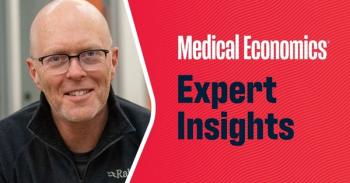
8 strategies to survive value-based reimbursement
Although some healthcare professionals may not welcome value-based reimbursement with open arms, they may to learn to love it later.
The dawn of value-based reimbursement is alive and well, so it's time to make the most of what can be seen as an opportunity for physicians, says
At larger facilities, reviewing documents, coding and meeting requirements is likely being done behind the scenes by other staff. However, as part of a smaller, independent practice, the onus is on the individual to understand and get on board.
Practices needed to begin collecting performance data by Oct. 2 to submit by Mar. 31, 2018. That meant they were set for the first payment adjustments that start on Jan. 1, 2019. Beyond that, the Centers for Medicare & Medicaid Services (CMS) have issued a
Meanwhile, here's what to know about succeeding with value-based reimbursement, according to Buchnowski:
1. This is a test.
The future health of a practice will be determined by its ability to adapt to change, he says, so start here.
2. Yes, it's one more thing.
First it was the Physician Quality Reporting system (PQRS), then Value-based Payment Modifiers and Meaningful Use. Physicians had just gotten comfortable when they heard about value-based reimbursement, but they have a history of adapting to new programs.
3. Walk on your welcome mat.
Look closely at the Medicare Access and CHIP Reauthorization Act (MACRA). It's true that CMS is making a great effort to engage physicians to ultimately benefit from this brand new program. This past June, the agency
For example, for ways to learn more about the QPP, including the Merit-based Incentive Payment System (MIPS), visit the QPP
CMS really does want providers to know it is listening, Buchnowski notes, and encourages feedback on the QPP "to benefit you, your practice, and your patients." Here's how to reach out:
· 1-866-288-8292
· TTY: 1-877-715-6222
· Subscribe to updates on the home page of the QPP site to avoid being out of touch as things change-and they will.
4. Swim the sea change.
This is an opportunity to help transform the healthcare system by proactively engaging with it, he says. Participate with major players-and payers-in an once-in-a-lifetime experience.
5. A practice may already "be there."
Maybe staff wants to focus on increasing access to care. Maybe the office hadn't previously been open on Friday afternoons, but just added that time slot to its accessible hours last month. The practice completed an improvement activity this year, since Jan. 1, through that simple step. Expanded Practice Access is a Clinical Practice Improvement Activity under the Merit-based Payment Incentive System (MIPS) that includes expanded practice hours, telehealth services and participation in models designed to improve access to services.
So practices should look at their current procedures to see what may already apply to meet value-based metrics.
6. Everyone knows this drill.
Some practices have already submitted PQRS data through a qualified registry. Continue doing that for MIPS to avoid a penalty in 2019.
7. This could be a deal-breaker.
If a physician is just out of medical school or newly enrolled in Medicare, they are exempt until the following performance year. However, engaging with value-based reimbursement will impart a better understanding of the business and payer sides of healthcare that affect the bottom line. Since the penalty will be 4% in year one, and if that margin keeps the doors open, it makes sense to report
8. Be confident in your abilities.
Physicians survive and excel through the most complex academic and professional rigors. They can certainly learn how value-based reimbursement works and how to make it work best for the practice.
Newsletter
Stay informed and empowered with Medical Economics enewsletter, delivering expert insights, financial strategies, practice management tips and technology trends — tailored for today’s physicians.






